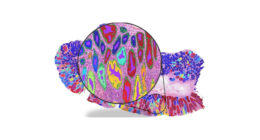Mindfulness meditation significantly reduces symptoms in individuals experiencing both internet gaming disorder and depression, according to research published in the medical journal PNAS Nexus.
Researchers led by Guang-Heng Dong studied 59 participants diagnosed with both conditions, comparing mindfulness meditation training against progressive muscle relaxation exercises. Internet gaming disorder affects approximately one-third of people with depression, with gaming sometimes becoming the primary source of pleasure for affected individuals.
The study allocated 32 participants to mindfulness meditation sessions, whilst 27 received progressive muscle relaxation training. Mindfulness participants attended twice-weekly sessions lasting 2.5 to 3.5 hours over four weeks, learning techniques including observing gaming cravings as they developed and subsided.
Results demonstrated significant symptom improvement in the mindfulness group compared to progressive muscle relaxation participants. Mindfulness meditation produced substantial reductions in depressive symptoms, internet addiction test scores, and gaming cravings. Participants in the progressive muscle relaxation group showed less pronounced improvements.
Brain imaging revealed that meditation practice decreased neural responses to gaming-related stimuli whilst increasing activity in the lentiform nucleus. This brain region change potentially indicates reduced anhedonia, a condition characterising diminished pleasure-seeking and enjoyment capabilities commonly associated with depression.
The meditation training incorporated addiction-specific techniques, teaching participants to observe their cravings without judgment as temporary experiences that naturally fluctuate. This approach differs from general meditation practices by specifically addressing addictive behaviours and associated mental health symptoms.
Internet gaming disorder involves excessive and poorly regulated video game usage, often accompanied by difficulties controlling gaming impulses. The condition frequently co-occurs with depression, creating complex treatment challenges requiring interventions addressing both disorders simultaneously.
The research suggests mindfulness meditation represents a promising therapeutic approach for individuals experiencing concurrent gaming addiction and depressive symptoms. The authors note that traditional treatments often target these conditions separately, potentially limiting effectiveness for patients experiencing both disorders.
Brain imaging data supported behavioural improvements, showing measurable changes in neural circuits associated with craving responses and reward processing. These neurological modifications align with participants’ reported symptom reductions.











